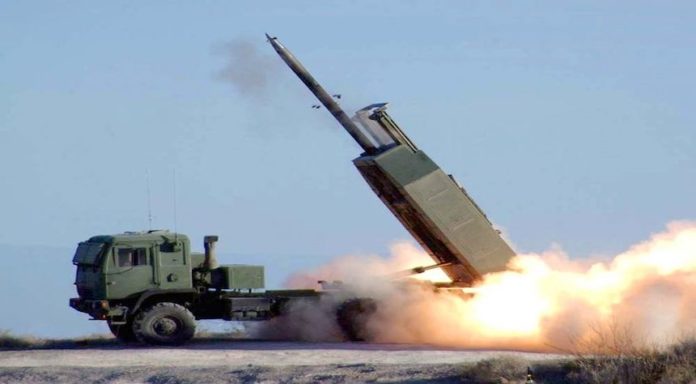According to a Wall Street Journal report, the Pentagon secretly modified deadly HIMARS rocket launchers that were sent to Ukraine in the past few months.
The Pentagon has never disclosed the unique feature that makes it impossible for Ukraine’s High-Mobility Rocket System (HIMARS), which is partially disabled, to fire missiles at ranges greater than 48 miles.
WSJ reports that the revelation today shows Washington’s efforts to “balance its support of Ukraine’s forces against any risk of escalation towards Moscow.”
Although I don’t agree with the White House decision, I appreciate the puzzle.
A modified HIMARS system, unmodified, might be able to fire longer-range missiles with deadly precision at targets deep within Russia if Ukraine manages to get hold of them. Military planners are constantly worried about how Moscow would respond to such attacks. This is impossible with the secret modifications made today by the Pentagon.
It was a hardware change? Software? Only the Pentagon knows and they don’t say.
HIMARS is not just a launcher. It can fire different missiles with ranges ranging from 6 miles for practice rounds (M28 versions), 48 miles for standard GMLRS rockets received by Ukraine, and over 180 miles for the coveted ATACMS launcher. Only GMLRS rockets have been granted to Ukraine.
Russia also reported explosions at two military bases on Monday. Both were well beyond the range of an ATACMS missile.
Earlier today, explosions were reported at military aircraft fields in Russia’s Saratov and Ryazan areas. Russian state media reported that a fuel tanker exploded at an airbase, injuring many others and causing three deaths. Ukrainian media reported that two Tu-95 strategic fighter bombers were damaged in a possible drone attack at the other airfield.
It’s a huge deal to destroy a few Tu-95s. The Russians have produced the “Bear” bomber, which is very similar to the B-52. It has a similar age, payload, and range. Also, it was built in the same numbers.
Only 55 Bears are currently in service. Even if they aren’t in service for a while, losing two of them is still a big deal. This is especially true considering that they were used by Moscow to launch stand-off cruise missile attacks against the civilian infrastructure of Ukraine.
It is still unknown how Kyiv managed to touch two airbases located 350 miles away. Russian air defenses don’t look good if drones were involved. Between 80-90% of Russian cruise missiles and drones have been shot down by the UA.
Is there another type for paranoid Kremlin types? The range of the UA’s nasty American rockets could be far greater than the range it publishes. Perhaps those shrewd Ukrainians were using a super-secret American missile.
Is there anyone in the Kremlin who is truly paranoid? Perhaps. It might be wise to act as though the Kremlin is paranoid for Washingtonians.
As Kyiv tries to harm Russia in areas previously considered safe, Washington should make it clear that our equipment had nothing to do with Kyiv’s increased reach.
Although today’s disclosure to the WSJ was probably too soon to be in response to the explosions at Saratov, Ryazan, this is not the first time that the UA has pulled off such unexpected tricks.
On the other hand, if I’m some smart engineer in the UA, I might ask permission to tinker with one of those HIMARS systems. What can be modified can sometimes be de-modified…


